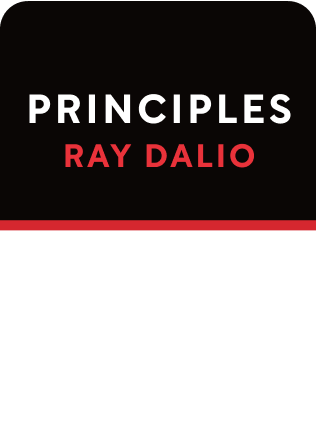

This article is an excerpt from the Shortform summary of "Principles: Life and Work" by Ray Dalio. Shortform has the world's best summaries of books you should be reading.
Like this article? Sign up for a free trial here .
How does independent thinking help you succeed at work? Why does independent thinking matter?
Independent thinking means that you can think creatively and critically. It’s an important skill for finding success in the workplace.
Read more to find out why independent thinking is a core skill for finding success in the workplace.
What Is Independent Thinking?
To be a successful financial trader, you need to have independent thinking skills. You need to 1) bet against the consensus view, and 2) be right. Aiming for this means that you’ll be wrong a lot. By making a lot of mistakes, Dalio developed a fear of being wrong, and he tried to figure out how to approach decision making to maximize his chance of being right.
This shifted his perspective from stating, “I know I’m right” to asking the questions, “How do I know I’m right? What am I missing?” Asking these questions prompted him to be relentlessly curious about why other smart people disagreed with him. He learned to get a broad range of inputs from other people, then weigh them according to how credible they were. This increased his chances of being right.
Importantly, Dalio had gone through so many mistakes and went through such painful times, that he learned not to care about whether the right answer came from him. He just wanted to be right.
Characteristics of Shapers
In the book, Dalio describes in detail one particular archetype that he believes he fits into: the “shaper.” The shaper comes up with unique and valuable visions and builds them out, despite the doubts of others. They tend to have sharp independent critical thinking skills.
Dalio realized his archetype when he was transitioning out of his CEO role, and he asked his lieutenants what his unique skill was. They answered it was “shaping.” He also believes other founder-entrepreneurs like Steve Jobs, Jeff Bezos, and Elon Musk fit this archetype.
Shapers have these qualities in common:
- Their baseball card reads: Visionary + Practical Thinker + Determined
- They have independent thinking skills verging on rebelliousness.
- They don’t let anything stand in the way of achieving their goals.
- They are resilient and gritty. Their need to achieve is stronger than the pain they experience.
- They have strong mental maps of how things should be done.
- They test their mental maps and change them to make them work better.
- They have a wider range of vision than most, seeing both big picture and granular details.
- They are assertive and open-minded at the same time. They are creative, systematic, and practical at the same time.
- They are intolerant of people who work for them who aren’t excellent.
- Nothing ever feels good enough, and this gap is both a tragedy and a constant source of motivation.
- They generally have low ranking on “concern for others”—largely because when faced between achieving their goal and pleasing others, they choose their goal every time.
- They sustain success over decades with continuous innovations and successes, rather than selling their company once for a lot of money (Dalio calls these “inventors”) or entering existing organizations and leading them well.
Dalio doesn’t have any value judgment on whether shapers are more important or valuable than other types. He just classifies himself as one and believes other founders of large companies tend to be them too, since they have independent critical thinking skills.
Idea Meritocracy
An idea meritocracy is an environment in which the best ideas win, regardless of where or whom they came from. Dalio believes the idea meritocracy is the best system for making decisions.
The way to build an effective idea meritocracy is to:
- Bring together smart people with independent thinking skills
- Have them thoughtfully disagree with each other
- Get past disagreement using agreed-upon systems.
Together, this will yield the best ideas and collective thinking. Idea meritocracy works better than just one person coming up with the ideas and issuing orders. It also works better than a group of smart people who can’t thoughtfully disagree with each other.
An idea meritocracy is built on a few foundational principles:
- Radical truth
- Radical transparency
- Thoughtful disagreement
- Believability-weighted decision making
With independent critical thinking skills, anyone will be able to adhere to the Principles of Life and Work.

———End of Preview———
Like what you just read? Read the rest of the world's best summary of Ray Dalio's "Principles: Life and Work" at Shortform .
Here's what you'll find in our full Principles: Life and Work summary :
- How Ray Dalio lost it all on bad bets, then rebounded to build the world's largest hedge fund
- The 5-step process to getting anything you want out of life
- Why getting the best results means being relentlessly honest with everyone you work with






